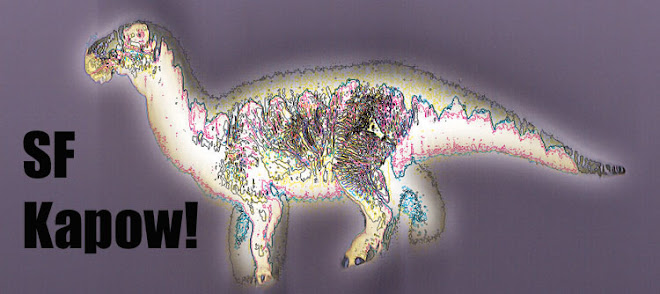Couldn't find it. Not on the shelf. Not on the ludicrously misnamed New and Hot in Science Fiction table. Not in non-genre fiction.
I ask a clerk. Bruce Sterling? Never heard of him (of course). We look it up on the computer.
Ah, they do have it in store. Three whole copies. Have I looked on the shelf? Yes. Have I looked on the New and Hot in Science Fiction table? Yes.
Two clerks later, we determine it is actually still in the back of the store. Judging by the lack of a big fat hole on the S shelf of the SF section, it has never actually been shelved. Because Bruce Sterling is not on the A list.
Sterling is one of the fathers of cyberpunk. He has been producing genre defining, award winning, best selling and well reviewed SF since the late 1970s. None of this matters to non-SF fans, and I don't expect it to. Sterling isn't in the public consciousness the way William Gibson or Neal Stephenson, or even Philip K. Dick are. For mass market purposes, he's a B lister. One of the top of the B listers, one with a devoted fan base all his own, stoked by his work as a futurist, WIRED blogger and general weirdo. But none of this matters to a big box book store. If he's not going to shift an entire crate of product in his first week, if he's not Dan Brown or Stephanie Meyer or J.K. Rowling or Stephenson, who cares? The books will get on the shelf when they get there. I imagine fans of any genre author, or even some good non-genre authors, have had similar frustrations trying to get a new book in their hands.
This is why Chapters will die. The only thing they can do better than Amazon is get books out there as physical objects, where you can see them and grab them up on impulse. And they can't even do that right.
Chapters, and its American big box bookstore cousins, are based on volume. I remember when I first went to a big box bookstore as a teenager. Not just a few shelves of SF books, but shelf after shelf after shelf. Books I'd only ever heard of on Prisoners of Gravity. It was nerdvana. (And who were they competing with? It was not, in my neck of the woods, with small mom and pop bookstores, or even with specialty stores, because the wastelands of suburbia contain neither of these things. It was with chains of shopping mall bookstores. Like Black Bond. So one chain out competes another. Who cares, if we get more book selection?)
Chapters has been beaten at its own game by Amazon. Everyone knows this already, of course, but the "where's my Bruce Sterling book" incident shows why. Obviously, Amazon has more books, and it's almost never out of stock of anything. This is not because Amazon is more virtuous or has a deeper respect for books or authors or readers than Chapters. Amazon does not care about my desires, any more than Chapters does. It's just set up to fulfil my desires anyway. It might not have one person on staff who gives a crap about SF either, but it's happy little filing system will let me locate the book, read the reviews, give me recommendations for other books, and even ship it to me for free if I buy a large enough volume of stuff.
The Chapters in my home town was still plenty busy around Christmas and during the Boxing Day sales. But it's basically dead walking. I wonder what we'll do with all the parking lots and the giant shells of bookstores when the last person without an internet connection dies?
